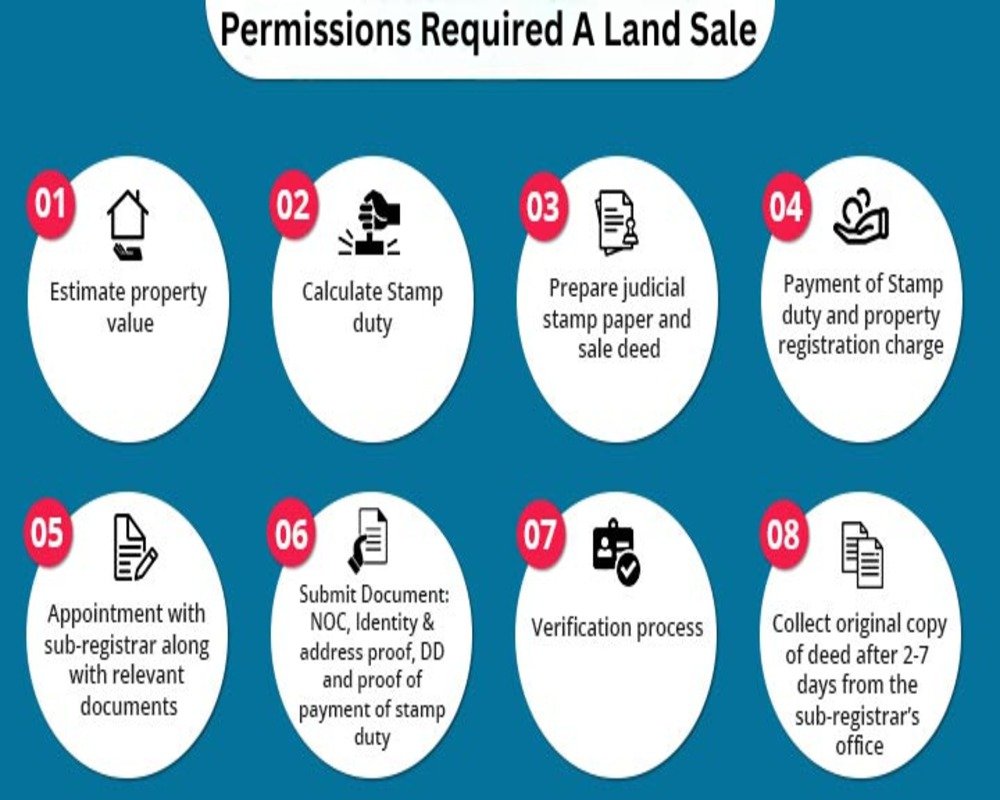1. Title Verification and Encumbrance Certificate
Before a land sale, it is essential to confirm the legal ownership and freedom from liabilities. This includes:
- Clear title certification from a registered legal advisor
- Encumbrance Certificate (EC) from the Sub-Registrar’s Office to confirm there are no mortgages, liens, or legal disputes
- Review of past sale deeds, partition documents, or inheritance records
These documents verify that the seller has legal authority to transfer the land.
2. Land Use and Zoning Approval
For industrial or commercial transactions, the land must be:
- Zoned appropriately as per the master plan of the local planning authority
- Free from restrictions such as green zone, forest land, or protected areas
- Converted, if originally agricultural, through a Land Use Conversion Certificate
This ensures the land complies with intended end-use requirements and regulatory zoning laws.
3. Mutation and Revenue Record Updates
The seller should ensure that the land is mutated in their name in revenue records. Required steps include:
- Verification of RTC (Record of Rights, Tenancy, and Crops) or Khasra/Khatian/Patta documents
- Updated entries in municipal or village land registers
- Confirmation of land classification, survey numbers, and plot boundaries
Mutation ensures that the land details are correctly reflected in government databases.
4. No Objection Certificates (NOCs)
Depending on the location and classification of the land, the seller may need to secure:
- NOC from local development authority or municipal body
- NOC from the legal heirs, in case of ancestral property
- NOC from financial institutions if the land was previously mortgaged and now cleared
These are necessary to avoid future legal complications and confirm that the sale is free from third-party claims.
5. Land Tax and Dues Clearance
The land should be free of any outstanding taxes or statutory dues, including:
- Property tax or land revenue dues
- Water charges, drainage cess, or any local development levies
- Any pending penalties or fines levied by local bodies
A tax clearance certificate may be required to validate that all dues have been paid.
6. Power of Attorney (If Applicable)
If the sale is being executed through an authorized representative:
- A registered Power of Attorney (PoA) document is mandatory
- It should clearly state the authority to sell and sign documents
- The PoA must be notarized and stamped as per legal requirements
This ensures that the sale is being carried out with valid authorization.
7. Environmental and Agricultural Land Permissions
If the land falls under any restricted or environmentally sensitive classification, the seller must obtain:
- Permission from the Pollution Control Board (if applicable)
- Land ceiling clearance or Section 37(A)/43(B) NOCs in some states
- Landowner’s eligibility confirmation, especially in cases of agricultural land sold to non-farmers (where applicable)
These are important in regulated or protected zones.




